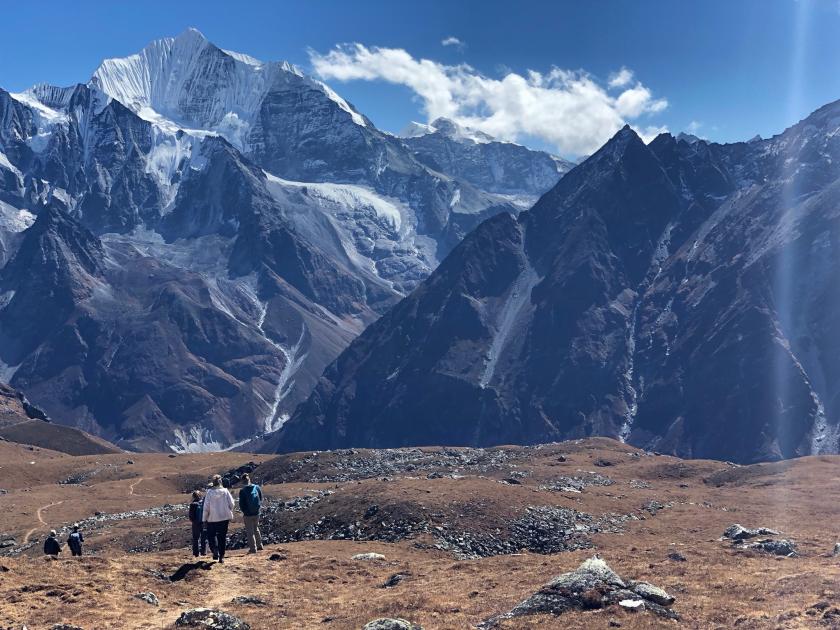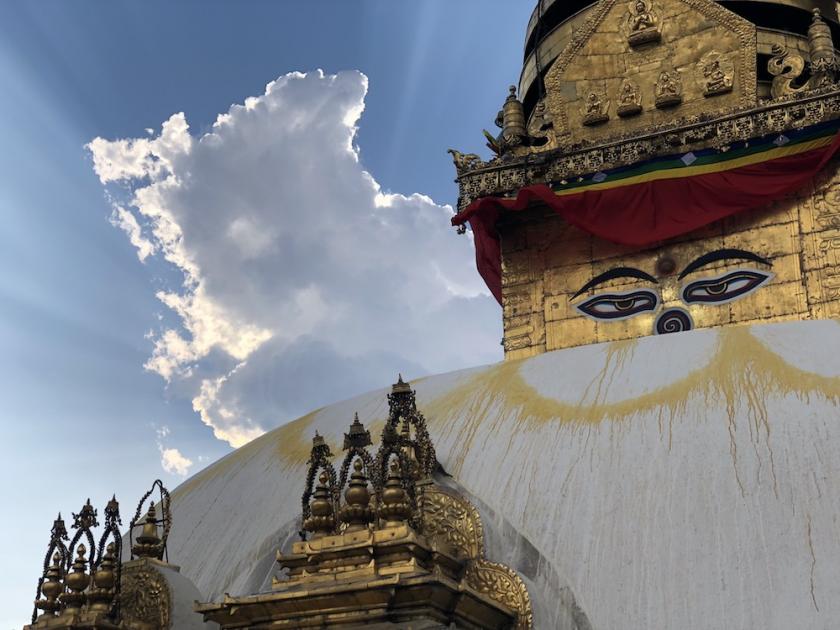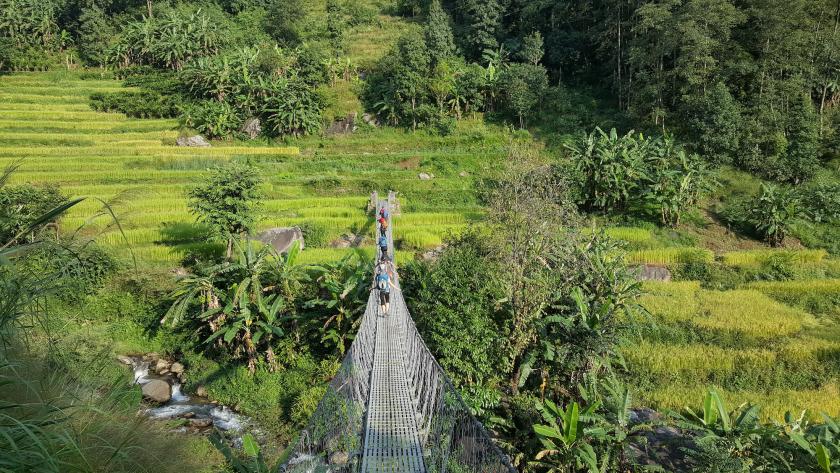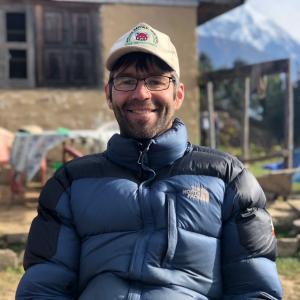Course Details
Syllabus
Program dates
-
Travel dates
-
Course credits
ESCI 437
Total credits: 15
Prerequisites
Instructor Approval
This program explores how people, plants, and animals thrive in one of the most rugged and beautiful landscapes on earth. Two National parks in the heart of the Himalayas will be our laboratory as we trek to alpine ridges in search of endangered Snow Leopards and Musk Deer, and traverse montane forests filled with rhododendrons, bamboo, and epiphytic orchids.
The parks have a unique mandate to conserve both natural and cultural heritage, and our trail will take us through many remote villages where we will meet with community forest managers, and lodge with Indigenous farmers. We’ll study the local language while sipping local tea, participate in cultural festivals, and help with the rural chores of our hosts. If you have grit, a deep sense of respect for other traditions, and a keen sense of adventure, this transformative experience might be for you!
Assignments and activities are all designed to help you connect more powerfully with the people and places we visit and grow together as a team. We collect biodiversity data using community science methods, maintain a field notebook, discuss scientific and ethnographic readings, and complete “scavenger hunts.” Activities include morning nature walks, trekking, homestays in farming villages, meeting Tibetan monks, studying the local language, observing and learning local arts and crafts, visiting scientists, community user groups, and non-profit organizations engaged in conservation work, and reflecting on our experiences, challenges, and areas of growth. This is one of WWU’s only science themed Study Abroad programs and the university’s most affordable quarter length program.
Image

Program Highlights
- Learn about Himalayan biodiversity, conservation, and mountain culture
- Trek in protected areas and community forests in the Everest and Langtang regions with breathtaking views
- Visit world heritage sites in the Kathmandu Valley
- Sleep in tea lodges, village homestays, and tents
- Earn 15 upper division Environmental Science credits during 7 weeks in Nepal
The adventure of a lifetime awaits!
Image

Expectations of Participants
The time walking & sitting varies from day-to-day. With or without reasonable accommodations, students should be prepared to walk or stand 6-8 hours/day, especially when the class is in motion. Activities include trekking in the central Himalayas. All participants must be able to walk 3-8 miles per day over steep and rugged terrain while carrying their own supplies.
Due to the remote location of this program, we cannot guarantee access to refrigeration.
Students must work with the WWU Disability Access Center, Wilson Library 170, (360) 650-3083, drs@wwu.edu. For service eligibility, a complete diagnostic description from a qualified professional is required. Specific accommodations or services are determined on an individual basis and are modified to meet the unique needs of the student and their academic experience. Accommodation policies and procedures are highly individualized and centered on self-advocacy, realistic self-appraisal, and student growth. Each quarter, students need to activate their approved accommodations for each class. Students choose which of their approved accommodations they want to activate for each class.
We strongly recommend that all students traveling on this Global Learning Program are fully vaccinated against COVID-19 to maximize the safety of the student cohort. Staying up to date with COVID-19 vaccines remains the most important step to protect yourself and your community.
Participants are expected to abide by all attendance policies of the program, including those for classes and excursions, and to adhere to the program schedule. Since the programs are academic in nature, parents, friends, partners, and families are not permitted on any part of the Global Learning Program. Personal travel must be outside of the course dates and not conflict with coursework or excursion schedules. Travel plans should be vetted by faculty beforehand to ensure personal plans do not interfere with meeting the learning objectives of the course.
Image


